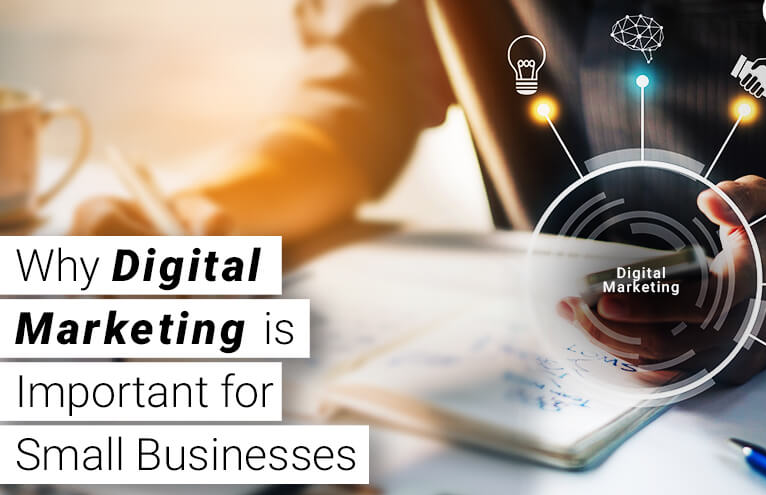9 Small Business Website Tips You Can’t Ignore
May 8, 2020
All businesses need a website. For small businesses, this is no different. In fact, it could be even more important.
A good website helps widen your audience and shares your vision with them. It gives you a place to both inform and connect with your audience. It also gives you a chance to turn that audience into paying customers who want to keep returning.
With such a vast amount of websites flooding the market, however, what is it that makes one small business website stand out above the rest?
1. Keep the Design Neat
The first thing your audience will see is the design of your website. If it is overly cluttered or disorganized, they’ll be instantly turned off and will hit the back button before giving your small business website a chance. Figure out whether or not redesigning your website completely will be ultimately more helpful.
Keep things neat and looking good, and your customers will keep coming back for more.
2. Easy to Find Contact Information
If your audience has a question, they don’t want to be left frustrated simply because they can’t find your contact information. This will sour their experience and could turn them away forever.
Don’t hide away your contact info. Make it easy to find and easy to access.
3. Become Mobile-Friendly
More people are browsing the Internet on their phones these days, and it’s a trend that doesn’t seem to be stopping anytime soon. If your small business website isn’t optimized for mobile devices, you’re doing yourself a disservice.
And your customers won’t be terribly happy either. Don’t neglect the mobile experience and your customers will thank you for it.
4. Be Upfront About the Business
Don’t be afraid to let your audience know exactly what you are offering them. It’s not a good idea to be too loud about it. No one enjoys pop-up advertisements, after all.
But going too far in the opposite direction could be almost as bad. You don’t want to lose out on a potential customer’s purchase if that customer isn’t able to figure just what it is you are trying to sell them.
Have your products or services pages easily available on all pages of your website to ensure no confusion keeps you from a good sale.
5. Ensure a Good User Experience
Above all else, make certain that your audience has a good experience while browsing your small business website. A potential customer will remember all of the bad things they’ve had to deal with when trying to find more information about your company, and that could be the reason they decide to find someplace else to take their business.
Be vigilant about the user experience of your website. You want the website to be organized and easy to navigate, you want it to load quickly, and you need the information to be accurate and spelled correctly.
Otherwise, those potential customers are not going to stick around for very long at all.
6. Have a Memorable Domain Name
The domain name you give your small business website should be something your audience can easily recall when they want to return. If you’re able to make it amusing or a pun on words, that’s even better. The domain name is one of the first clues a viewer will have as to what they can expect from your company.
Try to approach the domain name as if you were a random person searching the Internet. Does it look like a website you’d want to click on? If so, then that’s great, go with that.
If not, then perhaps it’s time to change the name to something that works much better.
7. Include a Blog or Newsletter
These days, a small business website isn’t just about the products or services page. You should also have a blog or a newsletter that can be informative and fun for your audience. Give them something that they can be excited about when you update.
This will help keep them on your website, and will also help to turn them into loyal customers who will stick around with you for a long time.
Keep in mind, however, that if you do add in a blog or a newsletter as part of your website, you need to keep a regular updating schedule. A blog that is never updated is worse than not having one at all. A missing blog is just a page that customers might miss, but a forgotten blog page just makes your company appear lazy.
The greatest thing about including one of these into your website is that it can help build a strong bond between your audience and your brand.
8. Add a Personable About Page
Being able to learn about who is behind the company is actually more important than people might think. Customers are able to become more invested in a company that they care for. An ‘about’ page is the perfect way to start building that bridge from ‘faceless company’ to ‘friendly company’.
Make sure to keep it open and honest. Share your passions for your product, the love you have for what you do. Your audience will respond well to that kind of devotion.
9. Share Your Business Hours
Including your company’s business hours somewhere easily accessible on the website can help keep your audience from getting impatient with your response times.
If a customer sends in a question about an order but is not sure when to expect a reply, they’ll quickly become frustrated by what they perceive to be a ‘slow response time’. Having your business hours clearly stated keeps this from happening.
Instead of thinking poorly of your customer service, that user will be able to see your posted hours and know that you’re closed on Sundays. Clearly posted business hours makes things easier for everyone.
Your Small Business Website is Certain to Stand Out
Going onto a website should offer your audience a unique experience that they will remember. Give them something that makes them want to come back. With browsing the Internet becoming easier and more accessible every day, you need to make good use of your website.
With these tips, you’ll be off to an excellent start!
Have any questions or comments? Feel free to contact us at any time.


